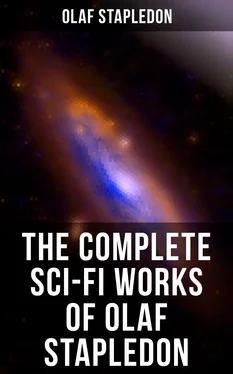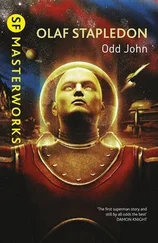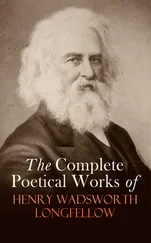Olaf Stapledon - The Complete Sci-Fi Works of Olaf Stapledon
Здесь есть возможность читать онлайн «Olaf Stapledon - The Complete Sci-Fi Works of Olaf Stapledon» — ознакомительный отрывок электронной книги совершенно бесплатно, а после прочтения отрывка купить полную версию. В некоторых случаях можно слушать аудио, скачать через торрент в формате fb2 и присутствует краткое содержание. Жанр: unrecognised, на английском языке. Описание произведения, (предисловие) а так же отзывы посетителей доступны на портале библиотеки ЛибКат.
- Название:The Complete Sci-Fi Works of Olaf Stapledon
- Автор:
- Жанр:
- Год:неизвестен
- ISBN:нет данных
- Рейтинг книги:5 / 5. Голосов: 1
-
Избранное:Добавить в избранное
- Отзывы:
-
Ваша оценка:
- 100
- 1
- 2
- 3
- 4
- 5
The Complete Sci-Fi Works of Olaf Stapledon: краткое содержание, описание и аннотация
Предлагаем к чтению аннотацию, описание, краткое содержание или предисловие (зависит от того, что написал сам автор книги «The Complete Sci-Fi Works of Olaf Stapledon»). Если вы не нашли необходимую информацию о книге — напишите в комментариях, мы постараемся отыскать её.
Novels:
Last and First Men: A Story of the Near and Far Future
Last Men in London
Odd John: A Story Between Jest and Earnest
Star Maker
Darkness and the Light
Sirius: A Fantasy of Love and Discord
Death into Life
Short Stories:
The Flames (1947)
The Seed and the Flower
The Road to the Aide Post
A Modern Magician
East is West
A World of Sounds
Arms Out of Hand
The Complete Sci-Fi Works of Olaf Stapledon — читать онлайн ознакомительный отрывок
Ниже представлен текст книги, разбитый по страницам. Система сохранения места последней прочитанной страницы, позволяет с удобством читать онлайн бесплатно книгу «The Complete Sci-Fi Works of Olaf Stapledon», без необходимости каждый раз заново искать на чём Вы остановились. Поставьте закладку, и сможете в любой момент перейти на страницу, на которой закончили чтение.
Интервал:
Закладка:
But inevitably, as the conditions of life became more and more severe, docility gave place to desperation. Daring spirits began publicly to question the wisdom, and even the piety, of so vast an expenditure of power upon ritual flight, when prime necessities such as food and clothing were becoming so scarce. Did not this helpless devotion merely ridicule them in the divine eyes? God helps him who helps himself. Already the death-rate had risen alarmingly. Emaciated and ragged persons were beginning to beg in public places. In certain districts whole populations were starving, and the Directorate did nothing for them. Yet, elsewhere, harvests were being wasted for lack of power to reap them. In all lands an angry clamour arose for the inauguration of the new era.
The scientists were by now panic-stricken. Nothing had come of their researches, and it was evident that in future all wind- and water-power must be devoted to the primary industries. Even so, there was starvation ahead for many. The President of the Physical Society suggested to the Directorate that ritual flying should at once be reduced by half, as a compromise with Gordelpus. Immediately the hideous truth, which few hitherto had dared to admit even to themselves, was blurted out upon the ether by a prominent Jew: the whole hoary legend of the divine secret was a lie, else why were the physicists temporizing? Dismay and rage spread over the planet. Everywhere the people rose against the scientists, and against the governing authority which they controlled. Massacres and measures of retaliation soon developed into civil wars. China and India declared themselves free national states, but could not achieve internal unity. In America, ever a stronghold of science and religion, the Government maintained its authority for a while; but as its seat became less secure, its methods became more ruthless. Finally it made the mistake of using not merely poison gas, but microbes; and such was the decayed state of medical science that no one could invent a means of restraining their ravages. The whole American continent succumbed to a plague of pulmonary and nervous diseases. The ancient ‘American Madness’, which long ago had been used against China, now devastated America. The great stations of water-power and wind-power were wrecked by lunatic mobs who sought vengeance upon anything associated with authority. Whole populations vanished in an orgy of cannibalism.
In Asia and Africa, some semblance of order was maintained for a while. Presently, however, the American Madness spread to these continents also, and very soon all living traces of their civilization vanished.
Only in the most naturally fertile areas of the world could the diseased remnant of a population now scrape a living from the soil. Elsewhere, utter desolation. With easy strides the jungle came back into its own.
V The Fall of the First Men
Table of Contents
1. THE FIRST DARK AGE
Table of Contents
We have reached a period in man’s history rather less than five thousand years after the life of Newton. In this chapter we must cover about one hundred and fifteen thousand years, and in the next chapter another ten million years. That will bring us to a point as remotely future from the First World State as the earliest anthropoids were remotely past. During the first tenth of the first million years after the fall of the World State, during a hundred thousand years, man remained in complete eclipse. Not till the close of this span, which we will call the First Dark Age, did he struggle once more from savagery through barbarism into civilization. And then his renaissance was relatively brief. From its earliest beginnings to its end, it covered only fifteen thousand years; and in its final agony the planet was so seriously damaged that mind lay henceforth in deep slumber for ten more millions of years. This was the Second Dark Age. Such is the field which we must observe in this and the following chapter.
It might have been expected that, after the downfall of the First World State, recovery would have occurred within a few generations. Historians have, indeed, often puzzled over the cause of this surprisingly complete and lasting degradation. Innate human nature was roughly the same immediately after as immediately before the crisis; yet minds that had easily maintained a world-civilization in being, proved quite incapable of building a new order on the ruins of the old. Far from recovering, man’s estate rapidly deteriorated till it had sunk into abject savagery.
Many causes contributed to this result, some relatively superficial and temporary, some profound and lasting. It is as though Fate, directing events toward an allotted end, had availed herself of many diverse instruments, none of which would have sufficed alone, though all worked together irresistibly in the same sense. The immediate cause of the helplessness of the race during the actual crisis of the World State was of course the vast epidemic of insanity and still more widespread deterioration of intelligence, which resulted from the use of microbes. This momentary seizure made it impossible for man to check his downfall during its earliest and least unmanageable stage. Later, when the epidemic was spent, even though civilization was already in ruins, a concerted effort of devotion might yet have rebuilt it on a more modest plan. But among the First Men only a minority had ever been capable of wholehearted devotion. The great majority were by nature too much obsessed by private impulses. And in this black period, such was the depth of disillusion and fatigue that even normal resolution was impossible. Not only man’s social structure but the structure of the universe itself, it seemed, had failed. The only reaction was supine despair. Four thousand years of routine had deprived human nature of all its suppleness. To expect these beings to refashion their whole behaviour, were scarcely less unreasonable than to expect ants, when their nest was flooded, to assume the habits of water beetles.
But a far more profound and lasting cause doomed the First Men to lie prone for a long while, once they had fallen. A subtle physiological change, which it is tempting to call ‘general senescence of the species’, was undermining the human body and mind. The chemical equilibrium of each individual was becoming more unstable, so that, little by little, man’s unique gift of prolonged youth was being lost. Far more rapidly than of old, his tissues failed to compensate for the wear and tear of living. This disaster was by no means inevitable; but it was brought on by influences peculiar to the make-up of the species, and aggravated artificially. For during some thousands of years man had been living at too high a pressure in a biologically unnatural environment, and had found no means of compensating his nature for the strain thus put upon it.
Conceive, then, that after the fall of the First World State, the generations slid rapidly through dusk into night. To inhabit those centuries was to live in the conviction of universal decay, and under the legend of a mighty past. The population was derived almost wholly from the agriculturists of the old order, and since agriculture had been considered a sluggish and base occupation, fit only for sluggish natures, the planet was now peopled with yokels. Deprived of power, machinery, and chemical fertilizers, these bumpkins were hard put to it to keep themselves alive. And indeed only a tenth of their number survived the great disaster. The second generation knew civilization only as a legend. Their days were filled with ceaseless tillage, and in banding together to fight marauders. Women became once more sexual and domestic chattels. The family, or tribe of families, became the largest social whole. Endless brawls and feuds sprang up between valley and valley, and between the tillers and the brigand swarms. Small military tyrants rose and fell; but no permanent unity of control could be maintained over a wide region. There was no surplus wealth to spend on such luxuries as governments and trained armies.
Читать дальшеИнтервал:
Закладка:
Похожие книги на «The Complete Sci-Fi Works of Olaf Stapledon»
Представляем Вашему вниманию похожие книги на «The Complete Sci-Fi Works of Olaf Stapledon» списком для выбора. Мы отобрали схожую по названию и смыслу литературу в надежде предоставить читателям больше вариантов отыскать новые, интересные, ещё непрочитанные произведения.
Обсуждение, отзывы о книге «The Complete Sci-Fi Works of Olaf Stapledon» и просто собственные мнения читателей. Оставьте ваши комментарии, напишите, что Вы думаете о произведении, его смысле или главных героях. Укажите что конкретно понравилось, а что нет, и почему Вы так считаете.












